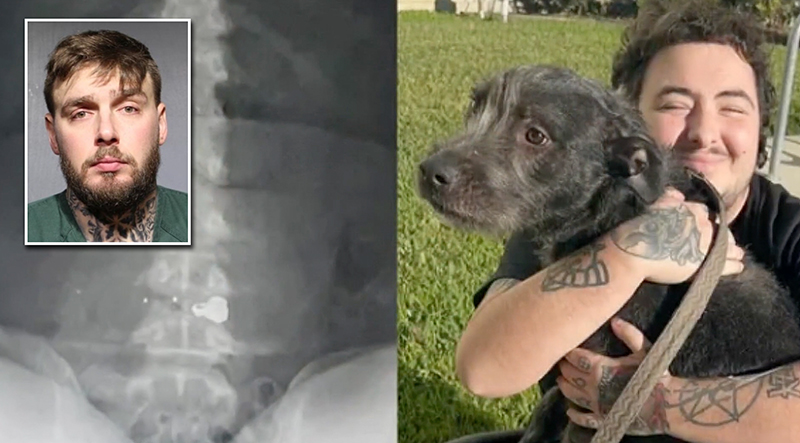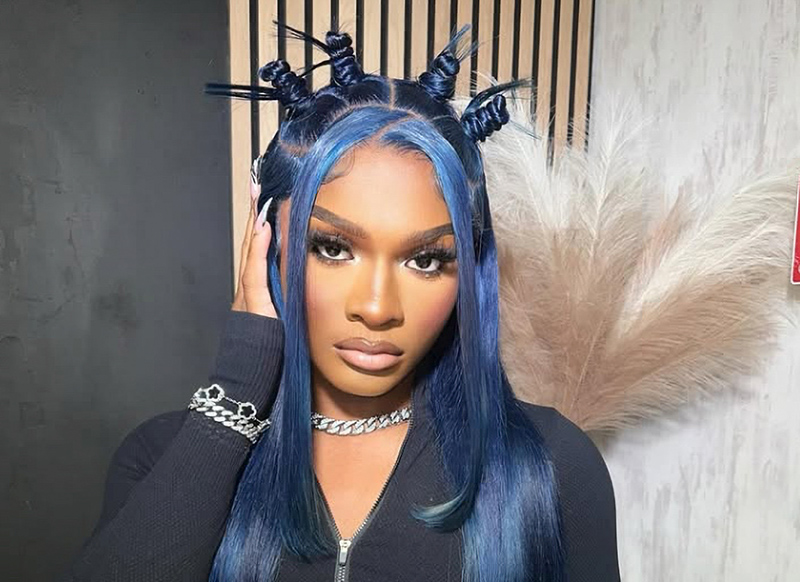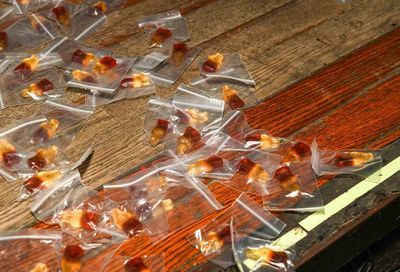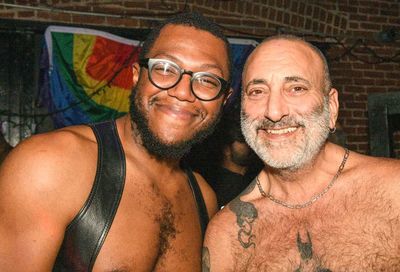Buzz Cut
With Nation's Friday Night Party Closed, Will Feds Focus on Velvet?

In May of 1999, Elisabeth Leamy went to a party. She brought a producer from Fox 5 News and a teeny, tiny hidden camera. By the end of the night, she had compiled some grainy, greenish, Gulf War-like footage that showed — according to Leamy — kids doing drugs and having sex. Fox News aired the footage in a two-part series.
The party was called Buzz, a weekly Friday night bash at Nation nightclub in Southeast. The patrons were young and white — the reason, some have conjectured, that the report supernova’d into a big damn deal overnight.
Suburban parents whose kids were bounding off to the party every Friday saw the report on TV and demanded action. D.C. police swooped in on a vine. Ravers took to the streets and protested. Buzz disappeared — for a while. But a few weeks later the so-called “rave ” was back. Just as everyone had suspected, the infamous party was unsinkable.
Until now. In three years, the climate has changed considerably for nightlife in America. New York superclubs like Twilo and Limelight have toppled, and last Wednesday, Buzz wrote its obit as well, the victim of what its organizers have called a “witch hunt. ”
The enormously popular event succumbed to “increased pressure from the D.C. Government, the United States Military and the United States Federal Government ” according to a statement issued on September 18 by Buzzlife Productions.
The announcement was abrupt, but not without foreshadowing. A month earlier, on August 22, the Joint Armed Forces Disciplinary Control Board issued an order that military personnel were barred from Nation due to “illegal drug activity ” inside the club, singling out ecstasy and pot.
Following the military’s announcement, those associated with Nation convened to make sure that their security was above board.
“We had a checkup meeting, ” says Ed Bailey, promoter of Velvet, the gay party on Saturday nights at Nation. “We feel that we take the appropriate measures. We wanted to make sure we were doing all we could do. ”
But despite stringent efforts to keep drugs out of the club, a bust at Buzz on Friday, September 13, led to eight patrons being arrested for distribution of ecstasy. Because Nation was infiltrated on a Friday, Buzzlife Productions feels that Buzz was targeted specifically.
|
“You could say that lots of parties wouldn’t exist if not for us, ” says Amanda Huie, Director of PR and Marketing for Buzzlife Productions. “But we were named the number one party in America [by URB magazine]. The big dog always gets targeted. ”
Buzz had been receiving warnings from several sources that pressure was reaching a critical mass. The bust that week was the tipping point, and it was decided that throwing a farewell party was too risky.
“We did not wants things coming to a head on that Friday and turning into a media spectacle, ” says Huie. “We were not going to allow the hundreds of jobs [associated with Velvet and Nation] to be lost because the government decided to make us a scapegoat. The potential for harm that it could cause was just too great. ”
Buzz has also accused the D.C. Police Department of harassing and intimidating patrons. Huie, who also serves as the club’s night manager, claims to have been “whipped around to a wall by five police officers ” while exiting the club through a side door, and then detained for 25 minutes. She believes the officers’ intention was to intimidate passersby who were walking toward the club.
Narcotics Inspector Hilton Burton of the D.C.P.D. denies the accusations.
“We don’t harass anyone. When we go in to do a drug operation it’s pretty clandestine up to the point where we lock someone up. When we lock them up, we take them out of the club. There’s no harassing. We enforce the law. ”
Bailey doesn’t believe such harassment has occurred on Saturday nights, saying his customers are a vocal group and that “if something had happened, we would have heard about it. ”
With Buzz gone, Velvet moves up a rung as one of Washington’s biggest weekly parties. Although it shared the same venue as Buzz, the link between the two events ends there. But people who don’t make Nation their home on weekends are apt to miss this little byte of information and see the whole thing as one package deal, worries Bailey.
“It depends on the sophistication of someone’s knowledge about the industry, ” he says. “I don’t know how the government and all of its agencies look at Nation nightclub, but it’s probably unlikely that they’re able to look at it and see that Friday nights and Saturday nights are separate. ”
Still, Velvet thus far has not been directly affected. The party’s DJ lineup is booked through the rest of the year, and Bailey has no plans to change that.
“You have to go on, and we have every intention of doing so, ” he says.
Still, Bailey says he’s wary about Velvet’s future. Buzzlife Productions alleges that the U.S. military and the D.C. Police Department joined forces to shut down Buzz, a collaboration that Buzz calls “unprecedented. ” According to Huie, the military has turned over the files from their two-and-a-half year investigation of Nation to the D.C. Police.
Inspector Burton says he hasn’t seen any files from the military.
Burton does concede, however, that any party or venue suspected of “contributing to the club drug craze ” is under investigation, and that Velvet is included on that list.
“There is an ongoing investigation…anywhere that you have patrons or people in a nightclub selling drugs. We’ve had a lot of information from sources telling us that drug trafficking is pretty heavy at Nation on Friday nights and on Saturday nights as well. ”
|
What that means for Velvet is still unclear.
“We’re crossing our fingers for them, ” says Huie.
As for Buzz, the indestructible party may be dormant for now, but it took only minutes following the announcement for rumors to begin circulating over the Internet regarding where, when and in what form Buzz would reemerge. Some speculated that Buzz president and founder Scott Henry will relaunch the party in Baltimore, which is home to Henry’s other endeavor and Buzz’s sister party, Fever. Most seemed to consider Buzz’s resurrection not a question of “if, ” but “when. ” Huie won’t confirm or deny any theories, but promises an announcement within the next couple of weeks.
“Things are flying around at the moment, and I don’t want to conjecture yet. But we’re looking to the future. Buzz is not going to go underground. It’s coming back with a fury. ”
But the federal government may soon be countering parties like Buzz with a fury of its own. Buzz’s shutdown is not an isolated incident. Across the country, promoters and scenesters alike have decried what they see as a war on nightlife sponsored by the War on Drugs. From New York’s drive to cleanse the city of superclubs to the DEA’s labeling of glowsticks as drug paraphernalia, the crackdown on club culture has riled the players of a massive entertainment industry.
The most overt example of the showdown is the Reducing Americans’ Vulnerability to Ecstasy (RAVE) Act. Introduced by Democratic Senator Joe Biden, the bill has been chastised as a scare tactic aimed at intimidating promoters with the threat of long prison sentences, thus cutting off parties at the source. Drug policy reform advocates, civil libertarians and First Amendment champions have all condemned the bill’s unconstitutionality. If passed into law, the RAVE Act could be the death rattle for an already embattled nightlife scene.
|
Next Week: A look at the RAVE Act, its advocates, its enemies and its unintended consequences. |
 |
Support Metro Weekly’s Journalism
These are challenging times for news organizations. And yet it’s crucial we stay active and provide vital resources and information to both our local readers and the world. So won’t you please take a moment and consider supporting Metro Weekly with a membership? For as little as $5 a month, you can help ensure Metro Weekly magazine and MetroWeekly.com remain free, viable resources as we provide the best, most diverse, culturally-resonant LGBTQ coverage in both the D.C. region and around the world. Memberships come with exclusive perks and discounts, your own personal digital delivery of each week’s magazine (and an archive), access to our Member's Lounge when it launches this fall, and exclusive members-only items like Metro Weekly Membership Mugs and Tote Bags! Check out all our membership levels here and please join us today!


























